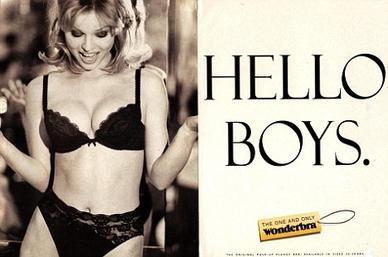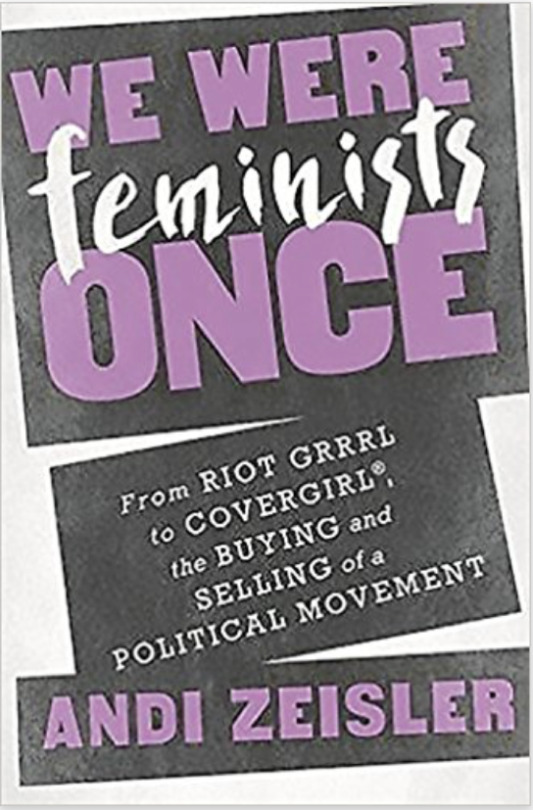Link
“this commercial is not exactly feminist”
“it feels disempowering to have a man explain sexism”
“attempting to associate Audi with feminist ideals, but the reality is that with no female board members.”
Taken from Nichole Fernández’s 2017 article, “The Problem with Femvertising” Sociological Pages
0 notes
Text
“Celebrity Feminism” and choice
Professor Anita Brady’s article, “Taking time between g-string changes to educate ourselves,” explores how celebrities have adopted feminism and talks about the disagreement among celebrities. During third-wave feminism, or recent feminism, activists focused on the importance of “choice.” This has led to controversy as whether or not women, especially celebrities, portraying their bodies sexually is liberating or merely self-objectification supported by the music/media industry.
1 note
·
View note
Link
Read Feministing article about choice feminism, which the author, Katherine Cross, calls the “the commodification of empowerment.”
Sociologist Katherine Cross is a Ph.D student at CUNY Graduate Center in New York. She specializes in online harassment and gender in virtual worlds research.
Read about commodity feminism here
0 notes
Video
youtube
This Vogue advertisement “ caused a lot of back lash a couple years ago. What do you think?
“They talk about empowerment when they are themselves slave to consumerism.”
Read the critique here.
0 notes
Link
A sociologist perspective on using feminism in advertising.
“Femvertising is a term used to describe mainstream commercial advertising that attempts to promote female empowerment or challenge gender stereotypes.”
“But in general the connection between female empowerment and what they actually sell is weak…Don’t try to just apply feminist concepts as an afterthought in hopes of increasing consumer sales.”
“Femvertising shouldn’t be a thing because we shouldn’t have to give a term to what responsible advertising agencies should be aiming for when they represent women.”
Nichole Fernández is a PhD candidate in sociology at the University of Edinburgh specializing in visual sociology.
Commodity feminism
0 notes
Photo

Landmark 1994 Wonderbra ad--Is this feminist?
“How is it that women’s arousal has come to be tied so closely to pleasing men?”
Rosalind Gill’s article on Midriff advertising, which “re-sexualizes women’s bodies, with the alibi of a feisty, empowered postfeminist discourse that makes it very difficult to critique.”
Gill, R. (2009). Supersexualize me. Advertising and the ‘Midriffs.” In F. Attwood (Ed.), Mainstreaming sex: The sexualization of Western culture (pp. 93-99).
Read summary here
0 notes
Link
“the track simultaneously refers to women as bitches.”
What do you think?
Watch his video here
0 notes
Text
What is Commodity Feminism?
“Commodity Feminism” describes how advertisement for women have adopted feminist language to seemingly invoke female empowerment, yet they are still objectifying women’s bodies and attempting to make a profit. It misuses the concept of female choice on how to present themselves. Women ultimately have to use their bodies as tools for self-expression and freedom. This means women can ultimately use only their bodies to maintain power. They become objects. This article explains how female advertisements capitalize on this by promoting female choice through the ability to gain wealth, beauty, and power through things or commodities (e.g. the company’s products).
read Robert Goldman’s article that coined the term here.
0 notes
Photo

Get on Amazon! https://www.amazon.com/Were-Feminists-Once-CoverGirl®-Political/dp/1610395891
Description: Feminism has hit the big time. Once a dirty word brushed away with a grimace, “feminist” has been rebranded as a shiny label sported by movie and pop stars, fashion designers, and multi-hyphenate powerhouses like Beyoncé. It drives advertising and marketing campaigns for everything from wireless plans to underwear to perfume, presenting what's long been a movement for social justice as just another consumer choice in a vast market. Individual self-actualization is the goal, shopping more often than not the means, and celebrities the mouthpieces.
But what does it mean when social change becomes a brand identity? Feminism's splashy arrival at the center of today's media and pop-culture marketplace, after all, hasn't offered solutions to the movement's unfinished business. Planned Parenthood is under sustained attack, women are still paid 77 percent—or less—of the man's dollar, and vicious attacks on women, both on- and offline, are utterly routine.
Andi Zeisler, a founding editor of Bitch Media, draws on more than twenty years' experience interpreting popular culture in this biting history of how feminism has been co-opted, watered down, and turned into a gyratory media trend. Surveying movies, television, advertising, fashion, and more, Zeisler reveals a media landscape brimming with the language of empowerment, but offering little in the way of transformational change. Witty, fearless, and unflinching, We Were Feminists Once is the story of how we let this happen, and how we can amplify feminism's real purpose and power.
0 notes